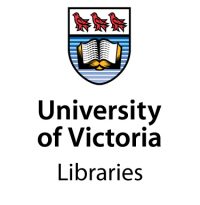Thesis of the Day*
UVic News recently announced that UVic ranks among the top performers in 10 fields, according to the 2019 Quacquarelli Symonds (QS) World University Rankings by Subject. To celebrate, we would like to feature some of our graduate research. Today, we feature a 2011 English Master’s Thesis:
“A Computer for the Rest of You”: Human-Computer Interaction in the Eversion
by Shaun Gordon Macpherson
Abstract:
With the increasing ubiquity of networked “smart” devices that read and gather data on the physical world, the disembodied, cognitive realm of cyberspace has become “everted,” as such technologies migrate the communications networks and data collection of the Internet into the physical world. Popular open-source “maker” practices—most notably the practice of physical computing, which networks objects with digital environments using sensors and microcontrollers—increasingly push human-computer interaction (HCI) into the physical domain. Yet such practices, as political theorists and some philosophers of technology argue, bypass the very question of subjectivity, instead lauding the socioeconomic liberation of the individual afforded by open-source hardware practices. What is missing across these discourses is a technocultural framework for studying the material ways that everted technologies articulate subjects. I argue that examining the various, contradictory forms of interface that emerge from physical computing provides such a framework. To support this claim, I focus on several case studies, drawn from popular physical computing practices and communities, and analyze the particular ways that these devices articulate subjectivity. I conclude by linking my technocultural framework with various feminist theories of boundary transgression and hybridity, and end by suggesting that, in an everted landscape, the subject is politically constituted by a proximity to present time and space.
To read more, visit UVicSpace https://dspace.library.uvic.ca/handle/1828/5286
*UVic’s open access repository, UVicspace, makes worldwide knowledge mobilization possible. Through this platform, researchers at any institution have access to dissertations (and theses and graduate projects) published by our graduate students. This also makes works available to the interested layperson, who may be engaged in learning more about the research being done at UVic, with no paywall. UVic’s graduate students are doing valuable research every day – but sometimes it goes unsung. Our goal with this series is to shine a light on our students by featuring excellence, one achievement at a time.
The UVic LIbraries ePublishing Services Team
